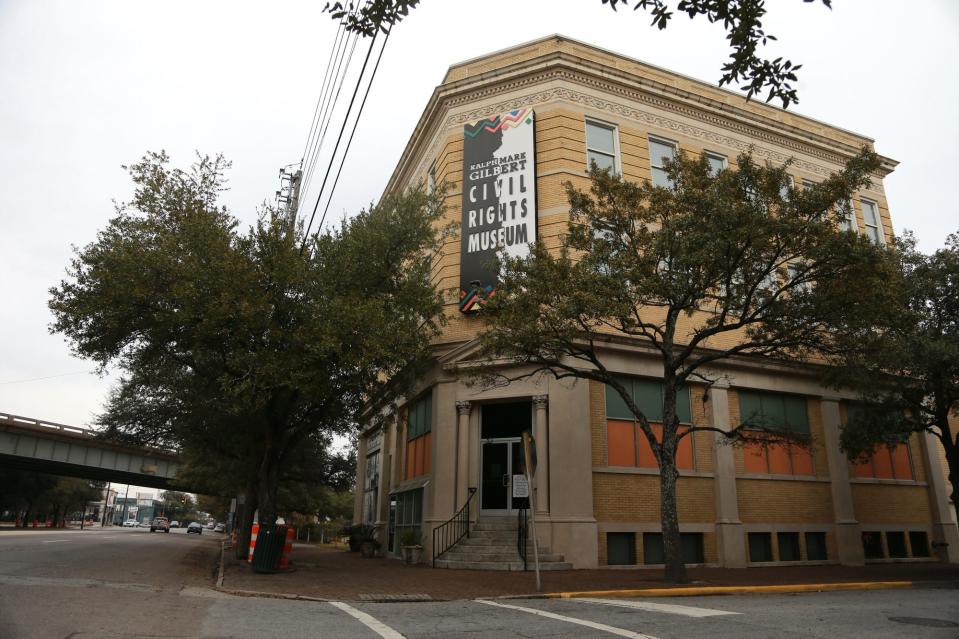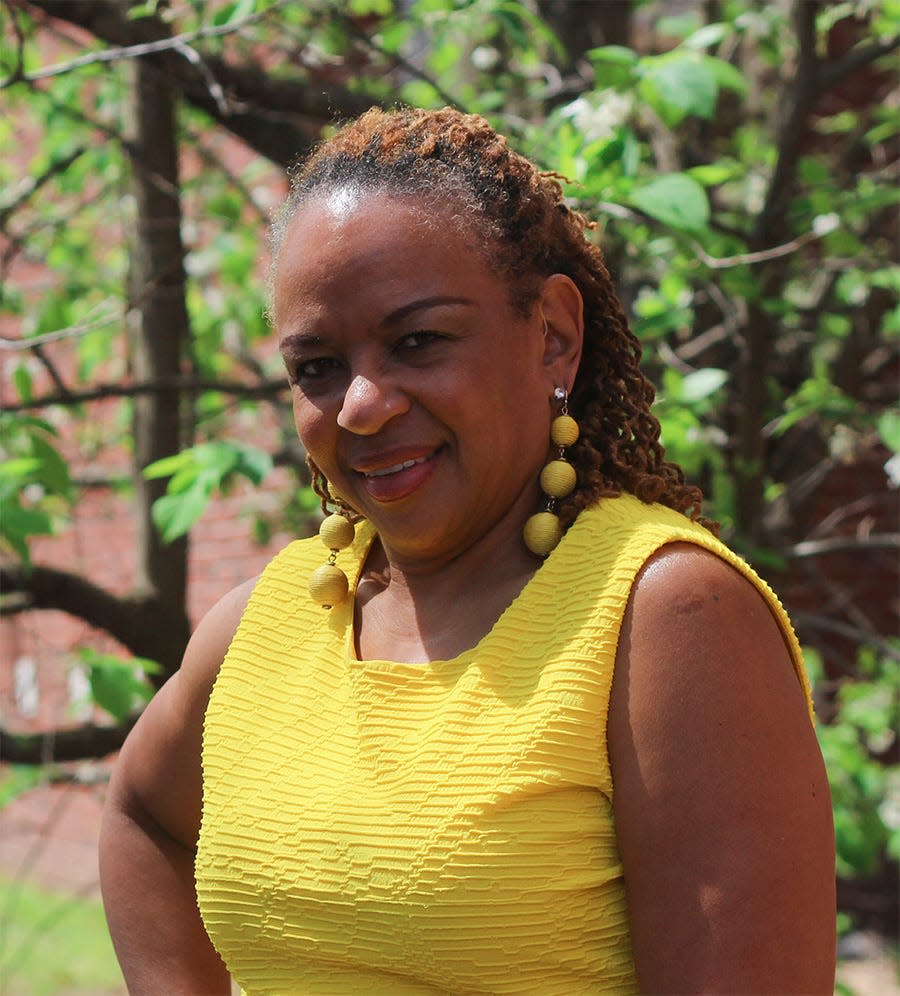With historical and cultural sites, Savannah is a destination of choice for Black family reunions
Lowcountry boil, smoked ribs, baked beans, potato salad, Hoppin' John, collards, crab cakes, sweet potato pie, red velvet cake.
Hungry yet?
These are foods that often accompany Black family reunions in the Lowcountry. Other family reunion ingredients include matching t-shirts, good music and, of course, line dancing. Summer is here, and Savannah is a favorite destination for families to gather from around the country for good food, fellowship and fun.
Family reunions serve to connect past, present and future generations. They are a time to celebrate kinship, honor family resilience, and to pass down traditions, memories and cultural heritage. These reunions are also a time to learn family history.
Reportedly, family reunions among Black families date back to Emancipation when formerly enslaved people sought out the family they were separated from as a result of forced sales and separation, such as the Weeping Time auction. This tradition would become a continuous celebration of reconnection, resilience and kinship.
An important element of Black family reunions is often the passing down of the family history in the culture’s oral tradition. In Africa, the keeper of the village history is the griot. In Black American families it may be Madea, grandpa, or any other elder who has witnessed the growth of the family and can share memories of times past. In the spirit of the Sankofa Bird, it is necessary to reach back to collect historical memories of the past so that future generations can know and remember, keep family traditions, and maintain continuity as the family continues to grow into the future.

Why is Savannah such a popular city for Black family reunions?
What makes Savannah a great place for Black family reunions is the rich cultural history that exists here. Places for family members to visit in the area include the Pin Point Heritage Museum, one of six historic museums of the Coastal Heritage Society. The Pin Point community was founded in 1896 by freed enslaved persons. The museum is a former oyster and crab factory that has been transformed into an educational center that focuses on Gullah Geechee culture. There, history is shared by local residents who are descendants of the families who established the community.
Family members can further experience Gullah Geechee culture by planning a visit to Geechee Kunda Cultural Arts Center & Museum in Riceboro. There they will find a gallery of artifacts that celebrate African American culture. Per the center's Facebook page, Geechee Kunda is “the epicenter for Africa’s connection to African Americans – where ancestral legacies began, where old ways are remembered, taught, and preserved.”

Another must is the King-Tisdell Cottage in Savannah. It is a museum that highlights the contributions of African Americans from as far back as the Civil War. Around the corner from the King-Tisdell Cottage is the Beach Institute African American Cultural Center, Savannah’s first school built specifically to educate African American children after Emancipation in 1867. The Beach Institute is now a beautiful museum of African American history that celebrates art and culture.
The Ralph Mark Gilbert Civil Rights Museum offers visitors a close-up experience of Savannah’s Civil Rights movement as they walk through three floors of history: Visit the lunch counter where Blacks were denied service. Sit in a pew to watch history unfold in a captivating video that recounts a story of hardship and victory. Read about the Tybee Beach Wade-In. See the history on the wall with Levy Department Store credit cards that local Blacks refused to use as they demanded desegregation of the store’s lunch counters.

Driving through the campus of Savannah State University, the state’s oldest public historically Black university, offers the opportunity to see the famous Yard ― home of the Divine Nine ― as well as to see original structures built to educate Black students in the "university by the sea."
For a truly spiritual experience, First African Baptist Church, the oldest continual Black church in the U.S., is a must-visit in Savannah. Organized in 1773 and constituted in 1777, the church predates the 1776 founding of the United States. Walking through the red doors is to respond to the unspoken invitation to experience Black history.
A newly added cultural experience awaits families at the Georgia Southern Gullah Geechee Cultural Heritage Center, of which, full disclosure, I serve as director. Visitors can stand at the oral history kiosks to see and listen to history as shared by locals, such as Lt. Col. John White (born in1924), one of the original nine Black law enforcement officers in Savannah back in 1947, or Otis Johnson, who was the first African American to desegregate Armstrong College (now Georgia Southern University Armstrong Campus). Additionally, a visual/oral presentation is given that traces Gullah Geechee culture and history in an informative, intriguing, and wholistic manner that challenges many listeners to reconsider what they thought they knew about Black history.
The Tybee Island Black History Trail invites visitors to discover untold stories of the local Black community. The trail is a collaborative effort of the Tybee Island Historical Society, Georgia Southern University, and TybeeMLK.

For a unique cultural experience, contact any one of several local Black/Gullah Geechee owned tour companies in Savannah. These include Underground Tours of Savannah with Patt Gunn, Footprints of Savannah Tour with Vaugnette Walker; Day Clean Journey Tour with Dr. Jamal Touré; Black History Tours with Rita Fuller-Yates, Freedom Trail Tour with Johnny Brown, and Journey By Faith with Karen Wortham. Go to Discover Black Savannah for a detailed listing of tours and places to visit.
Looking for entertainment for an upcoming family reunion? Try adding some Gullah Geechee flair with African drumming, ring shouters, storytellers, African dancers, etc.
In the R&B group The O’Jay’s song, "Family Reunion," Eddie Levert reminds us that the family is the solution to the world’s problems today. Family reunions are a way to preserve family history and traditions while creating memories for generations to come. And Savannah is a great place for families to gather. So, what are you waiting for? Begin planning your memorable family gathering today! Too often local Savannians forget to remember the historic jewels in our own backyard. Trace your history. Teach your history. Be your family’s Griot!
Start the experience with the many Juneteenth events happening over the next weeks.
10 a.m. to noon, June 7, Mother Matilda Beasley Park Juneteenth Family Celebration
11 a.m., June 15, Savannah Juneteenth Youth Fine Arts Festival at Forsyth Park
11 a.m. to 2 p.m., 4th Annual Juneteenth Celebration at Georgia Southern Gullah Geechee Cultural Heritage Center
9 a.m. to 11:30 a.m., June 15, Bryan County Juneteenth Freedom Day Prayer Breakfast
2 to 7 p.m., June 15, Pooler Juneteenth Celebration in Tanger Outlet
6 p.m., June 16, Juneteenth: A Musical Celebration at First African Baptist Church
7:15 to 10 a.m., Pooler Juneteenth Celebration Run & Walk
June 16-19, Tybee MLK Human Rights Organization 4th Annual Celebration of Freedom & Unity
3 p.m., June 22, Grand Festival Day at Forsyth Park

Maxine L. Bryant, Ph.D., is a contributing lifestyles columnist. She is an assistant professor, Department of Criminal Justice & Criminology; director, Center for Africana Studies, and director, Gullah Geechee Cultural Heritage Center at Georgia Southern University, Armstrong Campus. Contact her at 912-478-1248 or email [email protected]. See more columns by her at SavannahNow.com/lifestyle/.
This article originally appeared on Savannah Morning News: Savannah is a destination of choice for Black family reunions
